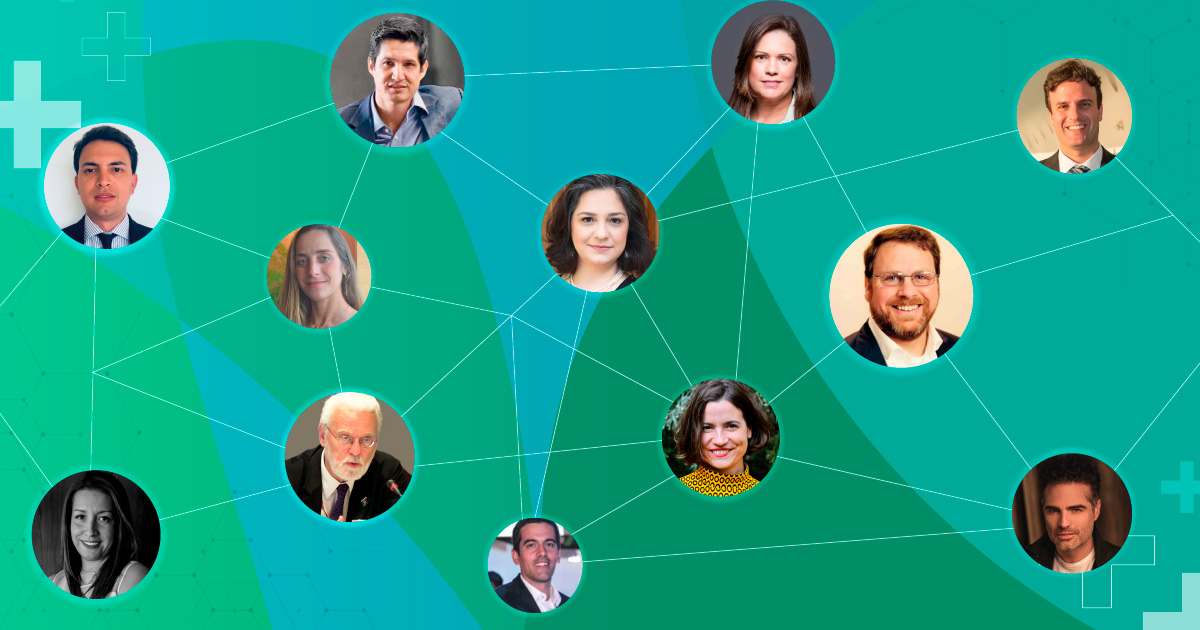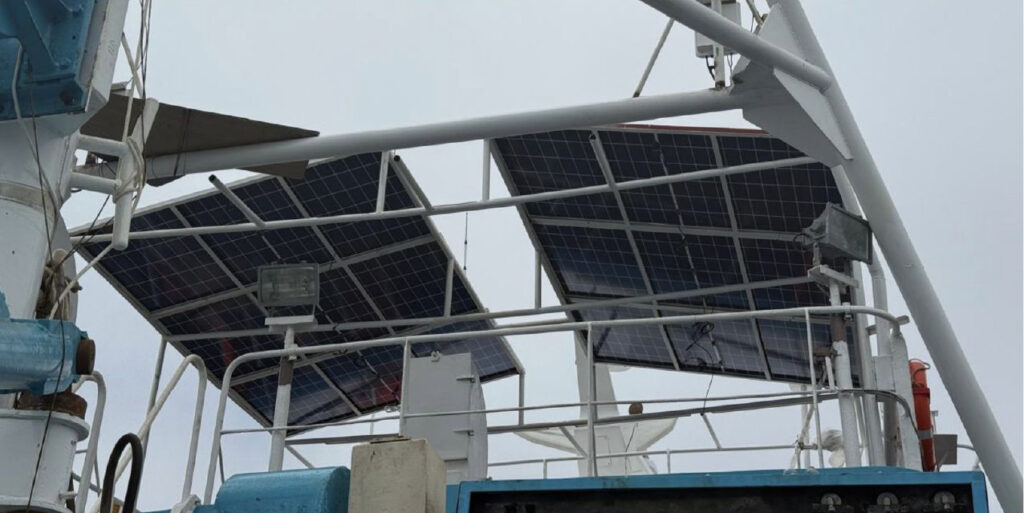This inspirational quote by Luisa Santiago, Lead Latin America of the Ellen MacArthur Foundationwas part of nexos+1: Foro Latam 2022, an international meeting space where more than 1,500 participants from 30 countries around the world gathered for 4 days (March 16, 23, 30 and 31). The event was organized by Dragonfly y DecarBOOSTa project that supports the Latin American region in catalyzing the transition to a low-carbon economy.
During the openingRoberto Manrique, actor, activist, and director of JuntosXLaTierrainvited us to ask ourselves if we are giving our 100% for the planet. Roberto, through his initiative, managed to plant more than 260 thousand trees thanks to the support of companies and individuals. He emphasized that it is important to be conscious and determined to protect the planet and in this way not only will we achieve more responsible companies for today, but also for future generations.
Systemic transformation starts at the enterprise level
In 2021, Schneider Electrica French electricity company with more than 186 years in the market, was recognized as the most sustainable company in the world, according to the Corporate Knights ranking, which evaluates more than 7,000 companies annually. Mathieu Piccin, director for Latin America, emphasized that it is not about reaching first place, but about being part of the change. He explained that 15 years ago they transformed the business, orienting their activities and services towards decarbonization.
Toyota has taken a similar path. David Caro, PR, CSR and Business Transformation Manager, remarked that the positive impact of electrification innovations has led to the reduction of 140 million tons of CO2. "Innovation usually applies to electric vehicles, but Toyota sees that a diversity of technologies can be used. Electric vehicles can meet the needs of short distances, and for freight and long-distance transport, hydrogen vehicles can be deployed in the long term."Caro emphasized.
Do current regulatory frameworks encourage decarbonization in Latin America?
Although progress has been made in the countries of the region, there is still a long way to go.
Clear goals are needed from governments to advance decarbonization. We cannot lag behind in the region, given that we have a great opportunity to take advantage of and promote the gradual decarbonization process of our economies.
This is how some countries in the region have understood it. Carolina Urmeneta, former head of the Climate Change Office of the Chilean Ministry of Environment, shared that in Chile, climate policy is a state policy, having approved the Framework Law on Climate Change, which establishes the goal of carbon neutrality and climate resilience by 2050.
"Chile is one of the benchmarks for the region in climate action, and its path is the one that will be taken by other countries in the region," said Fernando Andrade, regional coordinator for Latin America and the Caribbean of the Climate Promise of the United Nations Development Programme (UNDP)., who stated that national contributions (NDCs), in addition to being a climate instrument, are a management tool for countries.
Gabriel Quijandría, regional director for South America at the International Union for Conservation of Nature (IUCN), said that the business sector has increased its participation in the climate change discussion. "You see the evolution in economic competitiveness; consumers and society now demand sustainable standards." he explained.
Circular economy: meeting basic needs without overstepping planetary boundaries
Companies, cities, national and subnational governments are turning to circular models to regenerate their ecosystems and create fairer, more inclusive and sustainable economies. This production model is based on three principles: eliminate waste and pollution by design, achieve circularity of products and materials, and regenerate natural systems. In addition, this model considers the transition to a renewable energy source.
And that is the focus of the Donut Economy proposal. According to Carlota Sanz Ruiz, Co-founder of Doughnut Economics Action Lab, "the goal is to meet everyone's needs without exceeding planetary boundaries. Today, many people are not meeting their basic needs and at the same time we have exceeded planetary limits. To eliminate these gaps in needs and remove overlimits, the donut economy proposes that companies be distributive and regenerative by design.
Luísa Santiago, Lead Latin America of the Ellen MacArthur Foundation emphasized that the Circular Economy Coalition for Latin America and the Caribbeanled by Colombia, Costa Rica, Peru and Panama, supports the region's governments in implementing the circular economy. "We work with businesses, governments and change agents to catalyze action for a circular economy on the scale needed."he explained.
María Luisa Málaga, executive director of the Association of Non-Alcoholic Beverages and Soft Drinks (ABRESA) indicated that in the union space, companies find common points to generate positive impacts. "In Peru, the companies associated with ABRESA represent 80% of the sector in the country. We have challenges and concrete actions on the issue of circularity, and a common point is the circularity of packaging, and with it, we are able to reduce the use of plastic.", he emphasized.
How do we finance this transformation?
According to the Paris Agreement and the Intergovernmental Panel on Climate Change (IPCC), carbon neutrality must be achieved by 2050, which requires a structural transformation of society and the economy. Climate finance makes it possible to move towards circular and sustainable economic models, and also to finance decarbonization processes at a global level.
Eduardo Atehortua, director for Latin America of Principles for Responsible Investment (PRI) indicated that financial institutions, investment funds and insurance companies must understand that climate change is a source of opportunities and also a great risk for the Latin American financial system.
"It is essential that financial institutions prepare and implement actions to reduce risks. In Uruguay and Chile, more than 20% of energy generation is from solar and wind sources, which shows that they are investing in an electrified transportation system in Latin America. Investors can be certain that the country where they are investing is committed to gradually reducing its GHG emissions, said Atehortua.
Hernán Carlino, director of the Torcuato di Tella Foundationindicated that "To achieve carbon neutrality we need a structural transformation of society and the economy, that is to say, we need to make profound changes, find political decision-makers and social and economic actors. Finding a price on carbon is the best possible tool to induce and provoke the necessary transformations, concluded.
But why should the financial sector identify climate change risks and opportunities to make investment decisions?
Because we need to decrease global emissions by more than 60% by 2050. And for that, new and innovative policies and solutions, not yet proven or ready for deployment at scale, are needed to achieve the 1.5ºC target of the Paris Agreement.
In Argentina, for example, the types of incentives that can help energy efficiency projects in all sectors to develop the industry are being considered. In Peru, the main measures have been green criteria for public investment within the National Infrastructure Plan for Competitiveness (PNIC) and carbon pricing as a tool for greening investment. In Brazil, there is a need to improve transparency and reform fossil fuel subsidies, create innovative financial mechanisms, and establish a carbon price mechanism.
Latin American initiatives for decarbonization
During the last day of nexos+1, the official launching of the Latin American Climate Assets Disclosure Initiative (LACADI), which seeks to include climate change variables in investment decision-making in the financial sector in Latin America, with emphasis on Colombia, Mexico and Peru.
The Climate Finance Accelerator (CFA) was also presented, an initiative that seeks to build capacity to achieve bankable projects; improve awareness of climate projects; and create a program of projects that reduce emissions and have the potential to be financed in Colombia, Mexico and Peru.
During the closing of the forum, Pía Zevallos, CEO of Libélula, called for collective action: "Decarbonization of the economy must occur in the next 8 years, and input from all sectors is needed." he concluded.
DATA:
- Workshops were also held during the forum. You can find more information here.
- In the Libélula's YouTube channel you can find all sessions of nexos+1
- Follow the nexos+1 Twitter to learn about the online conversation around the business event.




